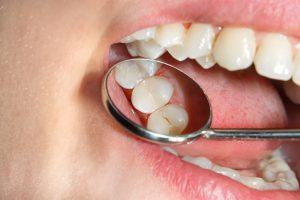Treatment for TMJ Disorder in Fort Worth, TX
Find Soothing Relief for Jaw Pain with Custom Treatment
 At Lake Country Dental, we recognize the profound impact TMJ (Temporomandibular Joint) disorders can exert on individuals’ daily lives. Our adept team of dentists and specialists, led by Dr. Ray Snider, stands prepared to alleviate your discomfort. If you’re grappling with TMJ symptoms, we urge you to engage in a consultation with us by calling 817-236-8771.
At Lake Country Dental, we recognize the profound impact TMJ (Temporomandibular Joint) disorders can exert on individuals’ daily lives. Our adept team of dentists and specialists, led by Dr. Ray Snider, stands prepared to alleviate your discomfort. If you’re grappling with TMJ symptoms, we urge you to engage in a consultation with us by calling 817-236-8771.
What is the TMJ?
The Temporomandibular Joint (TMJ) is a complex structure connecting the upper and lower teeth and jaw to the skull on both sides of the head. This joint plays a pivotal role in facilitating jaw movement, allowing us to talk, eat, and perform various oral functions seamlessly.
What is TMJ Disorder?
TMJ disorder, or Temporomandibular Joint Disorder, manifests when issues arise in the muscles surrounding the TMJ. This disorder can lead to a spectrum of symptoms, impacting the jaw, face, and neck. Common signs include discomfort, restricted jaw movement, and even headaches. Understanding the nuances of TMJ disorder is crucial for timely intervention and effective treatment.
Signs of TMJ Disorder
Identifying TMJ disorder involves recognizing a range of symptoms that may vary in intensity. Some prominent signs include:
- Jaw Pain: Persistent discomfort in the jaw, ranging from mild to severe.
- Limited Jaw Mobility: Difficulty in opening or moving the jaw freely.
- Jaw Popping or Clicking: Audible sounds during jaw movement, indicative of joint irregularities.
- Headaches: Recurring headaches, often originating from jaw-related tension.
- Neck or Face Pain: Discomfort extending to the neck or face regions.
- Ear Pain or Ringing: Sensations of pain or ringing in the ears linked to TMJ dysfunction.
- Difficulty Speaking or Eating: Impaired ability to speak or eat due to jaw-related challenges.
If you’re experiencing any combination of these symptoms, seeking a consultation with a knowledgeable dentist like Dr. Snider is essential for an accurate diagnosis and the formulation of an effective treatment plan.
Benefits of TMJ Disorder Treatment
 Timely and effective treatment with physical therapy for Temporomandibular Joint (TMJ) disorder offers various benefits, alleviating discomfort and enhancing overall well-being. Let’s explore the advantages individuals can gain from seeking professional TMJ Disorder treatment.
Timely and effective treatment with physical therapy for Temporomandibular Joint (TMJ) disorder offers various benefits, alleviating discomfort and enhancing overall well-being. Let’s explore the advantages individuals can gain from seeking professional TMJ Disorder treatment.
- Pain Alleviation: TMJ treatment can address and alleviate jaw pain for individuals with relief from persistent discomfort. By targeting the root causes of pain, treatments aim to enhance the quality of life by restoring pain-free jaw function.
- Improved Jaw Function: Successful TMJ disorder treatment contributes to improved jaw function, restoring proper movement and flexibility. This enhances the ability to speak and eat and ensures a better overall oral experience.
- Enhanced Quality of Life: The elimination or reduction of TMJ-related symptoms results in an improved quality of life. Individuals can enjoy daily activities without the hindrance of jaw pain, headaches, or other discomforts associated with TMJ disorder.
- Prevention of Further Damage: Timely intervention in TMJ treatment helps prevent the exacerbation of symptoms and further damage to the jaw joint. Protective measures, such as customized mouthguards, can safeguard against teeth grinding and related issues.
- Tailored Treatment Plans: Professional treatment involves personalized treatment plans designed to address the unique needs of each individual. Whether through non-invasive methods like mouthguards or more intensive solutions like corrective jaw surgery, the approach is tailored for optimal results.
Candidacy for TMJ Disorder Treatment
Determining whether one is a suitable candidate for TMD treatment involves assessing the severity of symptoms and their impact on daily life. Individuals experiencing the following conditions may be ideal candidates:
- Persistent Jaw Pain: Regular or consistent jaw pain indicates a need for evaluation and potential treatment.
- Limited Jaw Mobility: Difficulty in opening or moving the jaw freely may warrant intervention.
- Chronic Headaches: Frequent headaches originating from jaw tension could be indicative of TMJ disorder.
- Significant Discomfort during Daily Activities: If TMJ-related symptoms interfere with speaking, eating, or other routine activities, seeking treatment is advisable.
Our TMD Solutions
Thorough Assessment
We begin by conducting a comprehensive evaluation of your oral health and symptoms related to TMJ disorder. Our skilled professionals meticulously examine jaw movement, assess pain points, and discuss your concerns to formulate a precise diagnosis.
Personalized Treatment Plans
Our approach centers around crafting individualized treatment plans tailored to your specific needs. Whether it’s mild symptoms requiring customized mouthguards or severe cases necessitating surgical intervention, our solutions are meticulously curated for optimal outcomes.
Customized Mouthguards
For mild to moderate TMD cases, we offer custom-designed mouthguards. These appliances help redistribute bite force, alleviate pressure on the joint, relieve pain, and shield teeth from potential damage caused by grinding or clenching.
Advanced Surgical Interventions
 In instances where more intensive measures are required, our skilled team offers corrective jaw surgery. This procedure aims to reposition the jaw, optimize bite alignment, and enhance overall functionality while reducing pain.
In instances where more intensive measures are required, our skilled team offers corrective jaw surgery. This procedure aims to reposition the jaw, optimize bite alignment, and enhance overall functionality while reducing pain.
Compassionate Care and Support
Throughout your treatment journey, our compassionate team is dedicated to providing support and guidance. We prioritize clear communication, ensuring you are well-informed and comfortable at every stage of treatment.
Aftercare for TMD Treatments
Recovery and post-treatment care following Temporomandibular Joint Disorder (TMD) treatments play a pivotal role in optimizing results and ensuring sustained pain relief thereafter. Let’s delve into some essential aftercare practices aimed at nurturing recuperation after undergoing TMD treatments.
- Relaxation: Allow your jaw and surrounding muscles adequate time to recover by incorporating periods of rest. Avoid excessive chewing, strenuous jaw movements, or habits that could strain the treated area.
- Dietary Considerations: Opt for soft or liquid-based foods in the initial phase post-treatment to minimize jaw stress. Avoid hard or chewy foods that could strain the jaw joint.
- Maintain Oral Hygiene: Consistent oral hygiene practices are crucial. Gently brush your teeth and use mouthwash as advised by your dentist. Ensure proper cleaning around any dental appliances or devices.
- Heat and Ice Therapy: Alternating heat and ice packs on the affected area can help alleviate swelling, reduce discomfort, and promote healing. Follow the recommended intervals and duration for applying these therapies.
- Avoid Triggering Habits: Identify and abstain from habits that may trigger TMD symptoms, such as teeth grinding or clenching. If necessary, your dentist may provide customized mouthguards to mitigate these habits.
Frequently Asked Questions
How serious is TMD?
TMJ disorders can vary significantly in severity. In some cases, they might cause mild, intermittent discomfort, while in others, they can be more persistent and disruptive. Severe cases of TMJ disorders can significantly impact daily life, causing chronic pain and difficulty in basic functions like eating and speaking.
Can TMD resolve itself?
In certain instances, mild cases of TMJ might resolve on their own, especially if the symptoms are linked to temporary factors like stress or muscle tension. Chronic or severe cases often require professional intervention for effective management and relief.
How do you calm a TMJ flare-up?
TMD flares can disrupt life, but there are solutions. To calm a TMJ flare-up, several self-care measures can be helpful:
- Applying ice or heat packs to the jaw area can alleviate inflammation and provide temporary relief.
- Avoiding hard or chewy foods that might strain the jaw.
- Gently massage the jaw muscles to reduce tension.
- Practicing relaxation techniques to ease stress can exacerbate TMJ symptoms.
If jaw pain persists, consult a dental professional for more treatment information.
How long does TMD last for?
The duration of TMD varies widely depending on its cause, severity, and individual factors. For some individuals, symptoms might subside within a few weeks or months with proper treatment and self-care. Consulting with a doctor, dentist, or healthcare professional can provide a better understanding of the specific timeline for individual cases of TMD.
Don’t Live with Jaw Pain– Call Dr. Snider Today!
Bid farewell to incessant jaw joint discomfort with our compassionate dentists in Fort Worth, TX, at Lake Country Dental. Dr. Snider ensures personalized treatment, enabling you to revel in smiling, speaking, and savoring your favorite foods, liberated from jaw muscle discomfort and facial pain.
Commence your journey by scheduling a consultation today at 817-236-8771. We also welcome patients from Saginaw, Arlington, and River Oaks.



 817-236-8771
817-236-8771





